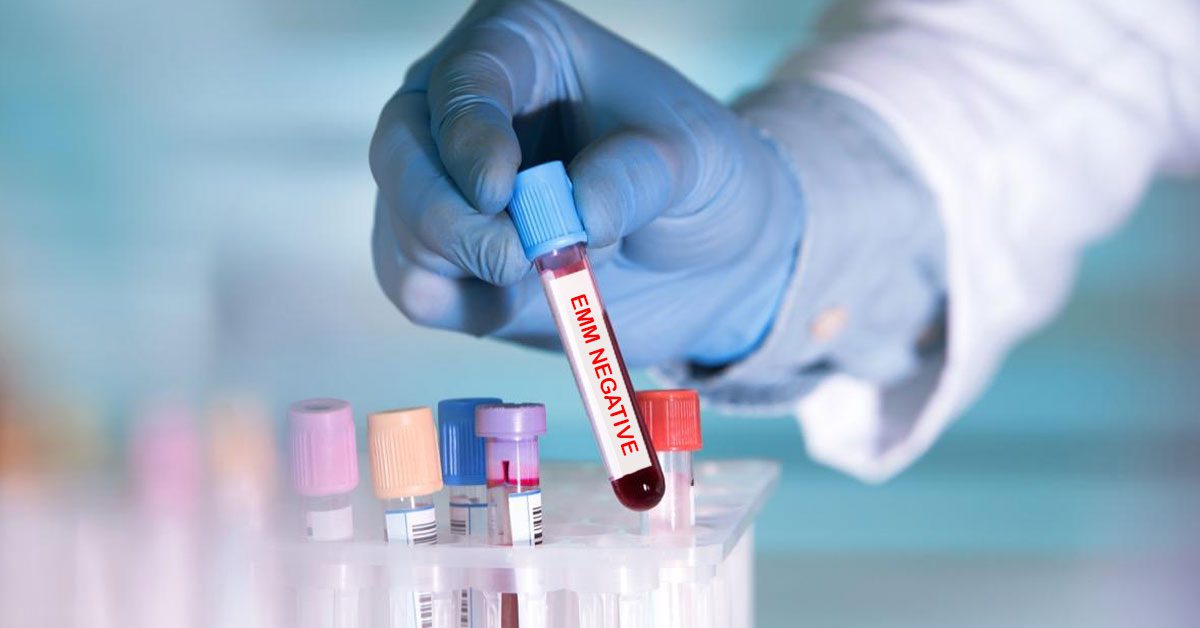Introduction:
In a startling medical discovery, a resident of Rajkot, a city in the Indian state of Gujarat, has been diagnosed with an extremely rare blood type known as EMN negative. This condition, characterized by the absence of the antigens EM, N, and related subgroups, has only been observed in a handful of individuals worldwide. The identification of this 11th case has sparked great interest among medical professionals and researchers globally, as it deepens our understanding of human blood types and their potential implications for transfusion medicine.
The EMN Negative Blood Group:
Blood types are classified based on the presence or absence of specific antigens on the surface of red blood cells. The ABO system (A, B, AB, and O) and the Rh system (positive or negative) are the most well-known blood group classifications. However, there are numerous other rare blood types that exist beyond these systems, and EMN negative is one such example.

Rajkotupdates.news:emm-negative-rare-blood-group-found-in-rajkot-man-11th-such-case-worldwide, The EMN negative blood group is extremely uncommon, with very few individuals worldwide having been identified with this unique characteristic. EMN refers to the three antigens found on red blood cells: EM, N, and their subgroups. People with EMN negative blood lack these antigens entirely, making them different from the vast majority of the population.
Discovery of EMN Negative in Rajkot:
The recent discovery of EMN negative blood in a Rajkot resident has sparked excitement among the medical community. The individual, whose identity has been kept confidential for privacy reasons, was undergoing routine blood typing when the absence of the EMN antigens was detected. Following thorough analysis and confirmation tests, medical experts concluded that the man possessed the extremely rare EMN negative blood type.
Worldwide Significance:

This case holds significant importance in the field of transfusion medicine due to the rarity of EMN negative blood. With only 11 known cases worldwide, this blood type stands out as a unique anomaly. Researchers and scientists are eager to investigate the implications of this rare blood group, particularly regarding its compatibility with transfusions, organ donations, and potential genetic associations.
Must Read=Rajkotupdates.news:gujarat-vidyapeeth-by-mahatma-gandhi-in-1920-will-invite-governor-acharya-devvrat
The Medical Implications:
Rajkotupdates.news:emm-negative-rare-blood-group-found-in-rajkot-man-11th-such-case-worldwide, The discovery of an EMN negative blood type presents challenges and opportunities within the medical field. Blood transfusions rely on compatible blood types to prevent adverse reactions and promote successful outcomes. Individuals with EMN negative blood may require specialized testing and cross-matching procedures to ensure they receive suitable blood products in the event of a transfusion.

Furthermore, this finding could potentially impact organ transplantation procedures. The compatibility between the EMN negative blood group and various organ types is an area of interest that researchers are likely to explore further. The discovery could lead to improved matching techniques and a better understanding of potential risks associated with organ transplantation for individuals with this rare blood type.
Conclusion:
Rajkotupdates.news:emm-negative-rare-blood-group-found-in-rajkot-man-11th-such-case-worldwide, The identification of EMN negative blood in a resident of Rajkot, India, marks the 11th known case of this rare blood type worldwide. This discovery has ignited widespread interest among medical professionals and researchers due to its rarity and the potential implications it holds for transfusion medicine and organ transplantation.
The unique characteristics of EMN negative blood bring forth both challenges and opportunities for healthcare professionals, who will strive to enhance their understanding of this rare blood type and its compatibility with various medical procedures. Continued research into EMN negative blood may shed light on the broader complexity of human blood types and open doors to advancements in personalized medicine.
FAQS
Q: What does EMN negative blood type mean? A: EMN negative blood type refers to a rare blood group characterized by the absence of the antigens EM, N, and their subgroups on the surface of red blood cells. Individuals with EMN negative blood lack these antigens, which sets them apart from the majority of the population.
Q: How rare is the EMN negative blood type? A: The EMN negative blood type is exceptionally rare, with only 11 known cases reported worldwide. Its scarcity makes it a subject of great interest and study within the medical community.
Q: How was the EMN negative blood type discovered in Rajkot? A: The EMN negative blood type was discovered in a resident of Rajkot, Gujarat, during routine blood typing procedures. Medical professionals detected the absence of the EMN antigens during analysis, and further tests confirmed the presence of the rare blood group.
Q: What are the medical implications of EMN negative blood type? A: The discovery of EMN negative blood type presents medical implications in the fields of transfusion medicine and organ transplantation. Individuals with EMN negative blood may require specialized testing and cross-matching procedures to ensure compatibility for blood transfusions. Compatibility with organ transplantation is an area of interest for researchers, as understanding the implications and risks associated with this rare blood type could enhance matching techniques and outcomes for organ recipients.
Q: How does EMN negative blood type affect blood transfusions? A: EMN negative blood type can complicate blood transfusions since compatibility with other blood types becomes crucial. Individuals with EMN negative blood may require specific testing and careful cross-matching to ensure they receive suitable blood products without adverse reactions.





